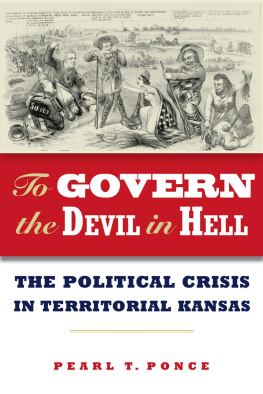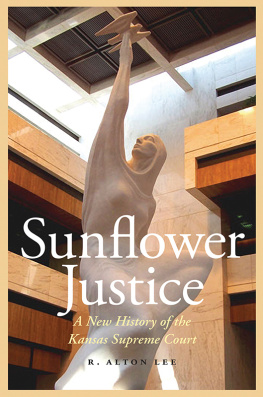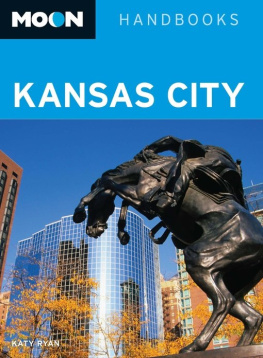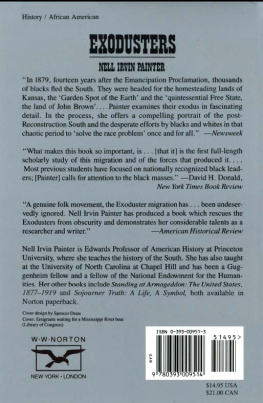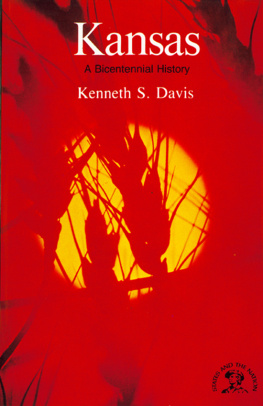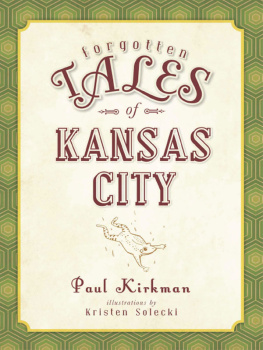4 by Northern Illinois University Press
Published by the Northern Illinois University Press, DeKalb, Illinois 60115
Manufactured in the United States using acid-free paper.
All Rights Reserved
Design by Shaun Allshouse
Library of Congress Cataloging-in-Publication Data
Ponce, Pearl T.
To govern the devil in hell : the political crisis in territorial Kansas / Pearl T. Ponce.
pages cm
Includes bibliographical references and index.
ISBN 978-0-87580-486-6 (cloth) ISBN 978-0-87580-706-5 (pbk.) ISBN 978-1-60909-159-0 (e-book)
1. KansasPolitics and government18541861. 2. KansasHistory18541861. I. Title.
F685.P66 2014
978.102dc23
2014002303
Jupiters Gift: The Creation of Kansas Territory
Territorial Politics and the Struggle for Party Supremacy, 18541855
Kansas in 1856: The Escalating Conflict
Congress and the Kansas Issue in 1856
The 1856 Presidential Campaign and Kansas as a Party Issue
Pledges and Principles: Buchanan, Walker, and Kansas in 1857
The Noise of Democracy: The Struggle over the Lecompton Constitution in Congress and Kansas
To the Stars through Difficulty
Kansas-Nebraska Vote in the Senate (March 3, 1854)
Senate Results by Section and Party
Final Kansas-Nebraska Vote in the House (May 22, 1854)
House Results by Section and Party
House Results by State
Kansas Contested Delegate Election: Comparison of Vote to Oust Whitfieldand to Seat Reeder (August 4, 1856) with Vote to Authorize a Special Investigating Committee (March 19, 1856)
I would like to acknowledge the historians who have shaped my education: the late Richard Harrison at Pomona College; John Lewis Gaddis and Steven Miner at Ohio University; and the late William Gienapp at Harvard University. In addition, I greatly appreciate the funding I received throughout my training, in particular at Ohio University where I was a Contemporary History Institute Fellow and at Harvard University where I was a Prize Fellow. At all three institutions, I was fortunate to be in the company of marvelous professors and dynamic colleagues. In particular, I especially would like to recognize the cohort at the Contemporary History Institute, especially Ruud van Dijk and Steve Taaffe, and my fellow tutors at Pforzheimer House, Harvard University, especially Elisabeth Guzman, John Yee and Mia Chung-Yee, Dayle Delancey, and David Bear.
Research for this book was facilitated by various grants. Thanks to the National Endowment for the Humanities, I spent five weeks in Nashville learning more about the South in Don Doyles Summer Seminar for College and University Teachers on Faulkner and Southern History. A Gilder Lehrman Fellowship allowed me to spend several weeks immersed in the Gilder Lehrman Collection at the New-York Historical Society. California State University provided a Summer Research Fellowship while travel funds in the History Department paid for a number of research trips, including significant ones to archives in Kansas, Pennsylvania, New York, Connecticut, and Washington. Finally, at Ithaca College, I received a Summer Research Grant and multiple grants from the Center for Faculty Research and Development which provided time off from teaching to focus on my scholarship. Furthermore, an Academic Project Grant paid for a research trip to St. Louis while my funding through the History Department and the Deans Office in the School of Humanities and Sciences paid for several trips to Kansas.
Portions of this manuscript have been published before. I would like to thank Virgil Dean for his early encouragement of my work and for soliciting an article for the journal he edited. A condensed version of chapter six was published in Kansas History: A Journal of the Central Plains, vol. 27, n. 12 (Spring-Summer 2004). In addition, my article Pledges and Principles: Buchanan, Walker, and Kansas in 1857 was subsequently reprinted in Virgil W. Dean, ed., Kansas Territorial Reader (Topeka: Kansas State Historical Society, 2005). A condensed version of chapter seven was published in Jonathan Earle and Diane Mutti Burke, eds., Bleeding Kansas, Bleeding Missouri: The Long Civil War on the Border (Lawrence: University Press of Kansas, 2013). I would especially like to thank Jonathan and Diane for inviting me to participate in the Border Wars Symposium in Lawrence, Kansas, in April 2011, and the Border Wars Conference in Kansas City, Missouri, in November 2011. I enjoyed contributing to the commemoration of the sesquicentennial of Kansass admission to the Union and meeting my fellow specialists in the era. I greatly appreciate all of Jonathans and Dianes hard work in organizing these events and editing the resultant book.
In finishing this book, I have incurred a great many debts. Thanks to all my friends and colleagues who read this work in its various incarnations. To all the research librarians and archivists with whom I worked, your dedication makes all historians work, not just my own, possible. To the anonymous readers of the manuscript, I valued your insights, which guided me as I made my final revisions. Thank you to Silvana Siddali for introducing me to Mark Heineke, formerly of Northern Illinois University Press, who contracted my book. In ushering this to publication, I would like to thank everyone at the Press, especially Kenton Clymer, Interim Director; Linda Manning, Director; Susan Bean, Managing Editor; and Shaun Allhouse, Production Manager.
To close, I would like to acknowledge how much my professional life has been enriched through the relationships I developed on faculty at two institutions. I would like to thank my colleagues in the History Departments at California State University, San Bernardino, and especially at Ithaca College where I now teach. In particular, I wish to thank Kurt Graham, Brett Flehinger, Jennifer Germann, and Angela Branneman for their support and friendship. As always, I am grateful for my family, especially Florence and Lauren Ponce-Cornejo, Andres Cornejo, and Aurora Ponce. Finally, I would like to dedicate this book to the late William Fahey, William Gienapp, and Melecio Ponce. They remain greatly missed.
Govern Kansas in 1855 and 56! You might as well attempt to govern the devil in hell. Although tinged with the bitter recognition of his own failures, former territorial governor Wilson Shannons assertion does reflect the difficulties Kansass executive teams faced when the typical settlement process disintegrated under the weight of political expediency. Better known as Bleeding Kansas in popular lore, antebellum Kansas continues to linger in our imagination as the subject of monographs, plays, poetry, songs, literature, and graphic novels. Concerned with explaining Kansass strife, many historians have outlined the territorial struggle, especially the conflict between those for and against slavery, to answer the question of why Kansas was bleeding in the 1850s. Of equal importance, but far less illuminated, is the question of why the government, both local and national, allowed the violence to continue unstanched for so long. This question is fundamentally about governanceits existence, exercise, limits, and continuanceand it is why Bleeding Kansas and the answers its study holds still matter more than 150 years after its admission to the Union.
At the local level, Kansas suffered from an excess of governance because the official government had a shadow: an extralegal organization formed by ideologues who believed that the territorial government was illegitimate since it had been tainted at the moment of its creation. During the first two territorial elections in late 1854 and early 1855, proslavery activists from neighboring Missouri had violated the integrity of the ballot box. At the behest of national political figures, these men crossed the border, assaulting and intimidating voters at the polls. The territorial legislature they helped elect soon passed laws supporting the implantation of slavery in Kansas and curtailing traditional American rights such as freedom of speech, freedom of the press, and the right to sit on a jury. In the wake of such legislation, antislavery advocates became convinced that the territorial government was trying to eradicate them, not represent them. Believing their only recourse was to establish their own government, complete with a separate executive, legislature, and constitution, free-state partisans appealed to the national government for relief, specifically for immediate admission to the United States.

